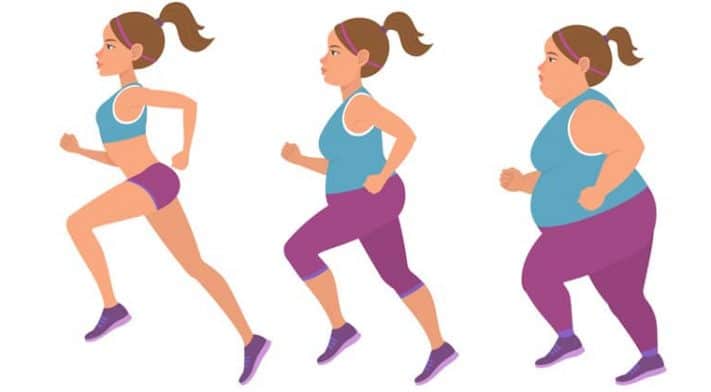5 Tips on Managing Cholesterol
Having high cholesterol means you’re at greater risk for heart diseases. But don’t panic just yet — the good thing is, it’s a risk you can manage. You can lower your bad cholesterol (the LDL cholesterol) and may increase your good cholesterol (the HDL cholesterol) through a combination of medications and simple lifestyle changes.
If you’ve just been diagnosed with high cholesterol, the next most important step to take is to discuss it in detail with your doctor.
Here are five tips to manage your high cholesterol levels and improve your overall health.
1. Talk to your doctor closely.
If you’ve just found out that you have high cholesterol levels, be sure to discuss your case thoroughly with your doctor. Some important questions you should ask him or her are: What are the risks of high cholesterol? What do my cholesterol levels mean? Should I take medications? What medications should I take? What could be causing my high cholesterol levels? Are there foods I must avoid? What form of exercise is right for me?
2. Schedule your follow-up consultations.
If you’re diagnosed with high cholesterol, you need to keep up with your follow-up appointments. Have your cholesterol level checked regularly so you can monitor if your medicines and other remedies are working. And ask your doctor when you need to come back for a follow-up consultation.
3. Take your medicine as prescribed.
If your doctor advised you to take medicine for high cholesterol, stick to your doctor’s instructions carefully. There are different types of treatment that may be recommended to you, such as statins, bile acid sequestrants, and cholesterol absorption inhibitors.
Make sure you understand everything about your medication and how or when to take them. Don’t just stop taking them without first consulting your healthcare provider.
4. Maintain a healthy weight.
 Most people think they need to lose plenty of pounds to reduce cholesterol. However, this isn’t always the case. Shedding off up to 10 pounds can take away up to 8% of your LDL1. If you’re severely overweight, you may need to lose more weight than this. A good rule of thumb is to monitor your weight and body mass index. For adults, a BMI between 18.5 and 24.9 is considered healthy2.
Most people think they need to lose plenty of pounds to reduce cholesterol. However, this isn’t always the case. Shedding off up to 10 pounds can take away up to 8% of your LDL1. If you’re severely overweight, you may need to lose more weight than this. A good rule of thumb is to monitor your weight and body mass index. For adults, a BMI between 18.5 and 24.9 is considered healthy2.
Remember not to overdo your weight loss regimen, though. Losing 1 to 2 pounds a week is ideal3, especially if you don’t want to gain back the pounds you’ve just lost. Also, consult your doctor for advice on a healthy weight loss program that suits your lifestyle, diet, and body type.
5. Watch out for trans fat.
Research after research has proven that trans fat increases the risk for heart diseases and inflammation, as well as high levels of bad cholesterol and low levels of good cholesterol.
We all want to avoid trans fat in our diet, but this can be tricky, as it’s found in several food products and ingredients. Fried foods, baked goods such as cakes, cookies, and dough, fast food, coffee creamers, and many others, are all notorious for containing trans fat4.
When you go grocery shopping, don’t forget to read food labels and look for “partially hydrogenated oil” in the ingredients list, which is just a prettier term for trans fat.
6. Quit smoking.
 If you smoke, quitting smoking5 is one of the best ways to restore your heart’s health and protect your arteries from further damage. Smoking alters the way cholesterol is processed by one’s body, thereby increasing the risk of heart diseases. Tobacco tar, rather than nicotine, causes dysfunctional immune cells that may result in clogged arteries. Smoking is therefore associated with low levels of good cholesterol and higher total cholesterol.
If you smoke, quitting smoking5 is one of the best ways to restore your heart’s health and protect your arteries from further damage. Smoking alters the way cholesterol is processed by one’s body, thereby increasing the risk of heart diseases. Tobacco tar, rather than nicotine, causes dysfunctional immune cells that may result in clogged arteries. Smoking is therefore associated with low levels of good cholesterol and higher total cholesterol.
While giving up smoking isn’t easy, you can get help from various support groups and even seek a friend’s help to make quitting easier.
A combination of medications and natural lifestyle changes can help you manage high cholesterol levels, improve your overall health, and therefore reduce the risk for heart diseases and stroke.
This article is not intended to be a substitute for professional medical advise, diagnosis or treatment. Always seek the advise of your doctor or other qualified health provider with any questions you may have regarding a medical condition.
——–
1 https://www.webmd.com/cholesterol-management/features/11-tips-to-cut-your-cholesterol-fast#1
2 https://www.nhs.uk/common-health-questions/lifestyle/what-is-the-body-mass-index-bmi/
3 https://www.mayoclinic.org/healthy-lifestyle/weight-loss/in-depth/weight-loss/art-2004775
4 https://www.healthline.com/nutrition/trans-fat-foods#section6
5 https://www.heartuk.org.uk/healthy-living/quit-smoking
